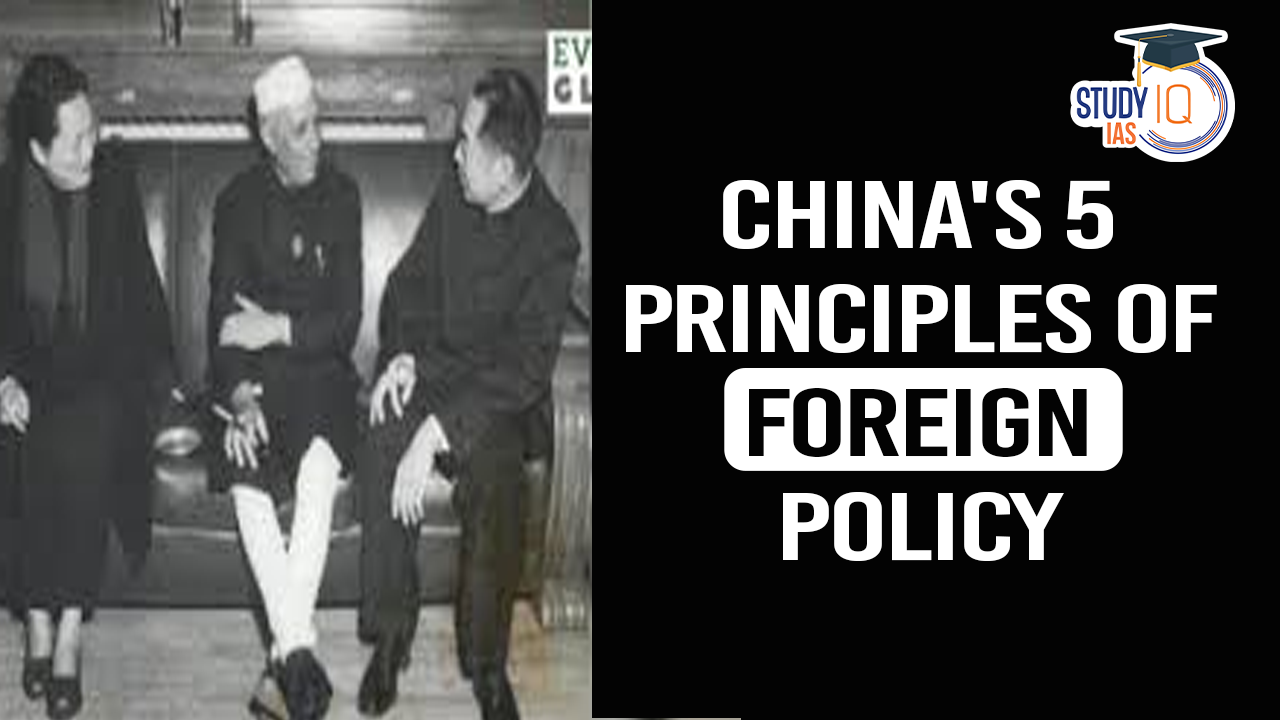Table of Contents
- China plans to commemorate the 70th anniversary of the Five Principles of Peaceful Coexistence with an event in Beijing.
- The theme of the event is “From the Five Principles of Peaceful Coexistence to Building a Community with a Shared Future for Mankind.”
What are These Five Principles?
- The Five Principles of Peaceful Coexistence, or Panchsheel, are central to a historical framework established in 1954 by India and China.
- This set of principles was intended to guide the bilateral relations between the two nations, particularly in the context of their interactions over Tibet.
Background
- The Five Principles of Peaceful Coexistence were first articulated during bilateral talks between India and China in 1954, which focused on Tibet.
- The principles were proposed by Chinese Premier Zhou Enlai and embraced by Indian Prime Minister Jawaharlal Nehru.
- These principles were officially documented in The Agreement on Trade and Intercourse with Tibet Region, signed on April 29, 1954, by N Raghavan, the Indian Ambassador to China, and Zhang Han-Fu, China’s Foreign Minister.
Principles Defined
The Five Principles outlined in the Panchsheel Agreement include:
- Mutual respect’s territorial integrity and sovereignty.
- Mutual non-aggression.
- Mutual non-interference in each other’s internal affairs.
- Equality and mutual benefit.
- Peaceful co-existence.
Broader Implications and Legacy
- Bandung Conference: A year after the agreement, the Five Principles were promoted at the first African-Asian Conference in Bandung, Indonesia, in April 1955, attended by 29 Asian and African countries. This conference served as a precursor to the Non-Aligned Movement (NAM).
- Non-Aligned Movement: Founded on July 19, 1956, by leaders including Pt. Jawahar Lal Nehru, Gamal Abdel Nasser of Egypt, and Yugoslav President Josip Broz Tito, NAM adopted the Five Principles as its core tenets. The movement emphasised non-alignment with global power blocs during the Cold War.
Panchsheel in Modern Context
- Erosion of Principles: The foundational idealism of Panchsheel suffered a major blow during the India-China War of 1962, leading to criticisms of Nehru’s approach as naive and his policies as ineffective in managing tensions with China.
- China’s Current Foreign Policy: Under President Xi Jinping, China has exhibited an aggressive foreign policy stance, marked by territorial claims in the South China Sea and strained relations with neighbouring countries and the United States.
- Ongoing India-China Tensions: Since 2020, there has been an ongoing military standoff between India and China along the Line of Actual Control (LAC) in Ladakh, with multiple diplomatic and military discussions failing to yield significant progress.


 Africa’s Nuclear Energy Market Status ...
Africa’s Nuclear Energy Market Status ...
 International Laws on Immigrants Right t...
International Laws on Immigrants Right t...
 SQUAD Grouping of USA, Key Members and I...
SQUAD Grouping of USA, Key Members and I...





















